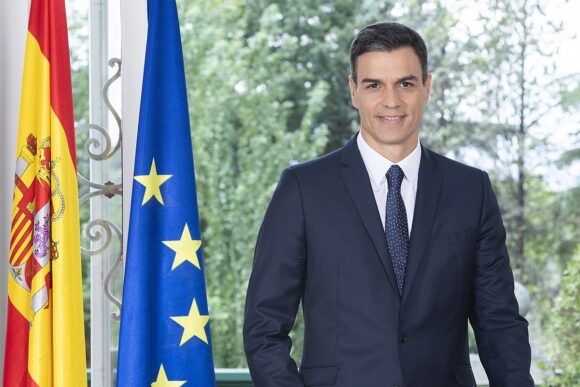Spanish Prime Minister Pedro Sánchez issued a public apology on Thursday following a deepening corruption scandal that has ensnared one of his closest political allies, prompting renewed political pressure and public scrutiny.
Speaking at the Socialist Party (PSOE) headquarters in Madrid, Sánchez addressed the fallout from the scandal involving Santos Cerdán, the party’s secretary and a long-time confidant. The Prime Minister acknowledged that he had been wrong to trust Cerdán, who is now at the center of a judicial probe over allegedly awarding public contracts in return for illicit payments. A judge has asked Cerdán to testify in the Supreme Court on June 25, as part of an investigation that also includes former party officials.
Cerdán, maintaining his innocence, announced his resignation on Thursday, stating that he had “never committed a crime nor have I been complicit in one.” He emphasized his intention to defend himself in court.
Facing growing speculation over his own position, Sánchez appeared before the media for the first time since a national power outage disrupted Spain in April. He used the opportunity to distance himself from the burgeoning scandal, stressing that he had no prior knowledge of the alleged misconduct. The Prime Minister also promised to restructure the PSOE leadership in the wake of the revelations.
“There is no such thing as zero corruption,” Sánchez admitted. “We shouldn’t have trusted him.” The Prime Minister added, “Like many others, I have my faults,” and extended a heartfelt apology to the Spanish people. “I want to ask for forgiveness.”
Rejecting calls for snap elections, Sánchez reaffirmed his commitment to serve out the government’s term, with the next general election not scheduled until 2027. He described the scandal as a personal and political setback, but insisted it should not derail his administration’s broader agenda. “This is not about me, and it’s not about the Socialist Party,” he said.
Despite being in power since 2018, Sánchez continues to govern through a fragile coalition. His current administration was only formed after the conservative Popular Party emerged as the largest party in the 2023 elections but failed to establish a majority.
The opposition intensified its criticism on Thursday, demanding further answers from the government. Deputy Prime Minister Yolanda Díaz, leader of coalition partner Sumar, also expressed concern and called for clarity, signaling growing unease even within Sánchez’s own alliance.
This latest controversy adds to a series of political crises that have plagued the Prime Minister in recent years. In April 2024, Sánchez made headlines when he considered resigning following a court’s decision to launch preliminary proceedings into his wife’s business affairs. In a dramatic televised address, he ultimately chose to remain in office after a five-day period of reflection.
Now, once again confronting scandal and political turbulence, Sánchez is seeking to retain control of the narrative—and his leadership—by accepting fault, promising reforms, and pledging to move forward.






